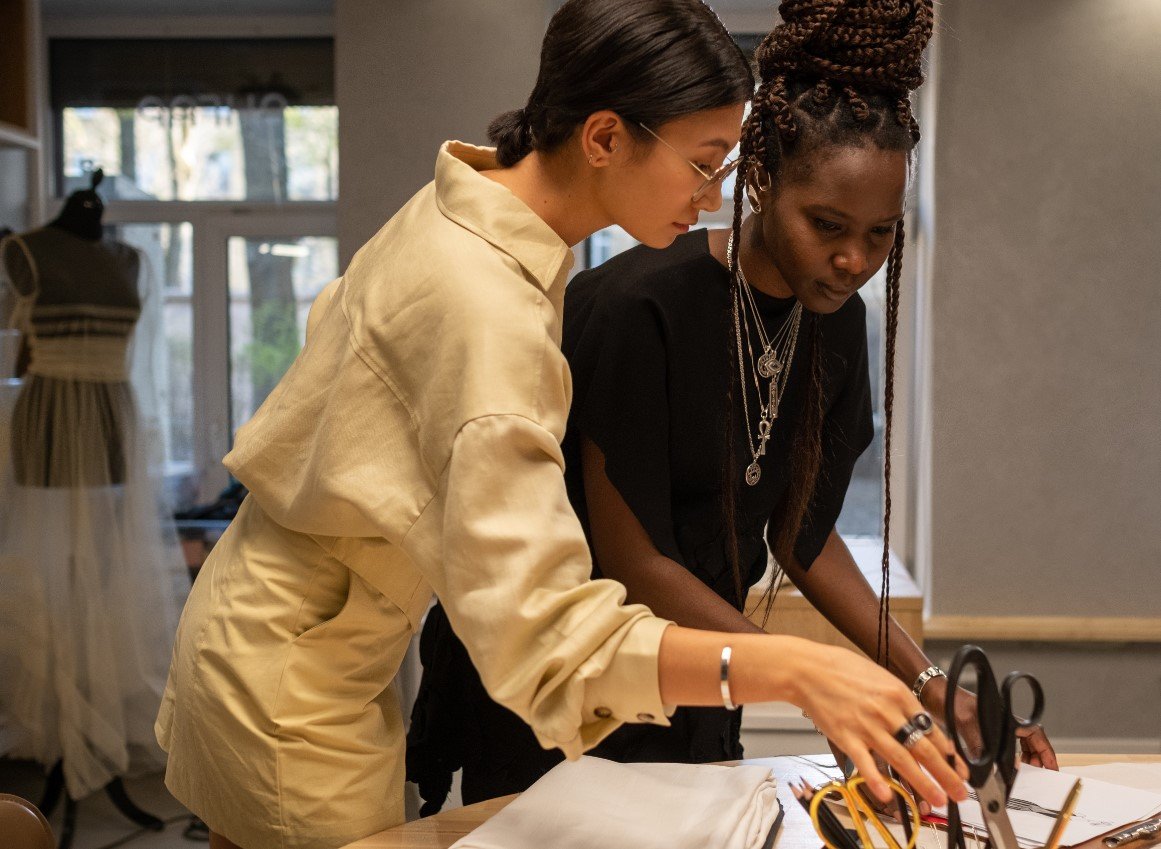The fashion industry is failing to address the risk of forced labor in its supply chains, according to a new report by KnowTheChain, a research organization that assesses forced labor in supply chains. The report found that the 65 largest global apparel and footwear companies scored on average 21 out of 100 in their efforts to protect workers from forced labor, and that more than one in five companies scored 5 or less.

The Scope and Scale of Forced Labor in Fashion
Forced labor is a form of modern slavery, where workers are coerced, deceived, or threatened to work against their will, without freedom or dignity. According to the International Labour Organization (ILO), there are 25 million people in forced labor worldwide, and 16 million of them are in the private sector, including the fashion industry.
The fashion industry is one of the most labor-intensive and globalized sectors, with complex and opaque supply chains that span multiple countries and tiers. The industry employs millions of workers, mostly women and migrants, who are vulnerable to exploitation and abuse. The industry also faces various social and environmental challenges, such as low wages, poor working conditions, human rights violations, environmental degradation, and climate change.
The COVID-19 pandemic has exacerbated the risk of forced labor in the fashion industry, as the demand and supply of clothing plummeted, leading to canceled orders, unpaid wages, layoffs, and closures. The pandemic also disrupted the monitoring and auditing of the supply chains, and increased the pressure and competition among the suppliers and workers.
The Methodology and Findings of the Report
The report by KnowTheChain, which was released in January 2024, is the fourth edition of its apparel and footwear sector benchmark, which evaluates the 65 largest global apparel and footwear companies on their policies and practices to address forced labor in their supply chains. The report uses a benchmarking methodology based on the UN Guiding Principles on Business and Human Rights, and covers seven themes: commitment and governance, traceability and risk assessment, purchasing practices, recruitment, worker voice, monitoring, and remedy.
The report found that the average score of the 65 companies was 21 out of 100, which indicates a low level of action and disclosure on forced labor. The report also found that more than one in five companies (20%) scored 5 or less, and that more than one in three companies (34%) scored less than 10. The report identified several gaps and weaknesses in the companies’ performance, such as:
- Lack of transparency and traceability of the supply chains, especially beyond the first tier of suppliers, where the risk of forced labor is higher.
- Lack of responsible purchasing practices, such as fair pricing, long-term contracts, and timely payments, which can affect the working conditions and wages of the suppliers and workers.
- Lack of ethical recruitment practices, such as prohibiting recruitment fees, ensuring written contracts, and verifying the identity and age of the workers, which can prevent the debt bondage and trafficking of the workers.
- Lack of worker voice and empowerment, such as enabling the freedom of association, collective bargaining, and grievance mechanisms, which can allow the workers to express their concerns and seek remedies.
- Lack of effective monitoring and auditing of the supply chains, especially during the COVID-19 pandemic, which can detect and prevent the violations and abuses of the workers’ rights.
- Lack of adequate and accessible remedy for the workers who have been subjected to forced labor, such as providing compensation, restitution, rehabilitation, and legal assistance, which can restore the workers’ dignity and justice.
The report also highlighted some examples of good practice and progress among the companies, such as:
- Lululemon, the highest-scoring company with 63 out of 100, which disclosed strong human rights due diligence efforts to address forced labor risks, such as conducting human rights impact assessments, engaging with stakeholders, and implementing corrective action plans.
- Puma and Adidas, the second and third highest-scoring companies with 58 and 55 out of 100, respectively, which disclosed comprehensive traceability and risk assessment of their supply chains, as well as robust worker voice and empowerment initiatives, such as supporting trade unions, worker committees, and hotlines.
- H&M, Nike, and PVH, which disclosed some innovative and collaborative approaches to address forced labor, such as piloting digital wage payments, supporting migrant worker networks, and joining multi-stakeholder initiatives, such as the Uyghur Forced Labor Prevention Coalition.
The Recommendations and Implications of the Report
The report by KnowTheChain provides several recommendations and implications for the companies, the investors, the governments, and the consumers, to improve the situation and prevent forced labor in the fashion industry, such as:
- For the companies, to adopt and implement a human rights due diligence approach, which involves identifying, assessing, preventing, mitigating, and accounting for the impacts of their activities on the human rights of the workers, and to disclose their policies and practices in a transparent and verifiable manner.
- For the investors, to engage and influence the companies, by using their leverage and voice, to improve their performance and disclosure on forced labor, and to integrate the human rights risks and opportunities into their investment decisions and strategies.
- For the governments, to regulate and enforce the human rights obligations of the companies, by adopting and implementing mandatory human rights due diligence laws and standards, and by providing guidance and incentives for the companies to comply and improve.
- For the consumers, to demand and support the human rights of the workers, by using their purchasing power and influence, to choose and promote the products and brands that respect and protect the human rights of the workers, and to raise awareness and advocacy for the issue.
The report by KnowTheChain shows that the fashion industry is failing to address the risk of forced labor in its supply chains, and that more action and disclosure is needed from the companies, the investors, the governments, and the consumers, to end this modern form of slavery and exploitation.
